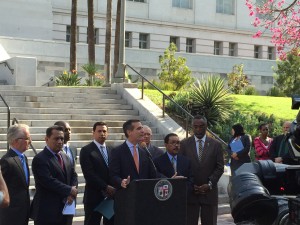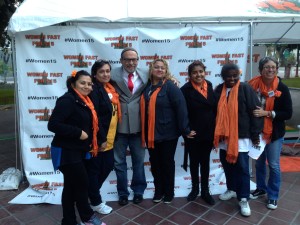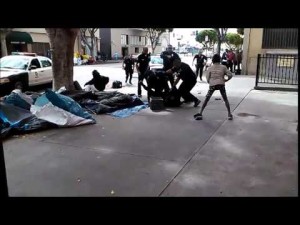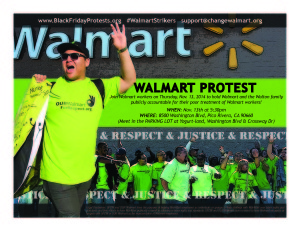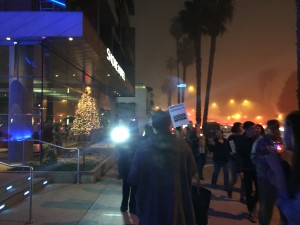 Tonight we light the fourth Hanukah light.
Tonight we light the fourth Hanukah light.
One of the things that the Sages of the Talmud do best is designate times for rituals. Often according to the cycle of the sun—first light on the horizon, sparkling of the sun, sunrise, midway through the sun’s cycle, twilight, sunset. These time measurements (for prayer, for starting the Sabbath, for beginning and ending fast days and holidays) are relatively objective. It is surprising then that we find the following time designation for the Hanukah candles:
The obligation [of lighting the Hanukah candles] is from the setting of the sun until everyone has left the market. (Bavli Shabbat 21b)
Why do the Hanukah candles have to be burning until the marketplace is empty, rather than, say, two hours into the night, or some other “objective” marker?
There are two blessings for the Hanukah candles. One blessing is upon lighting the candles, and the other is for seeing them (and being reminded of the miracles God has done). When a person lights the candles, she makes both blessings since she has both lit and seen them. However, if a person is just passing by, he may make the second blessing, for seeing the candles without having lit them. This is where the marketplace comes in.
Hanukah lights are lit on the boundary of private and public with the intention that they are seen both inside the house and in the market. The purpose is to shine light on the marketplace. Flame, the symbol of the Divine, is sorely needed in the marketplace. The spiritual need for justice and righteousness is most acute in the market, where the illusion that “this is all the work of my own strength, my own hands,” is most rampant. The dazzling idol of wealth can blind one to the demands of justice, to the righteous needs of workers, to our covenantal obligation to the earth. The flame of the hanukiyah, the Hanukah candelabrum, shines a light into the marketplace, binding us to the demands of justice. “Do what is just and right; rescue from the defrauder him who is robbed; do not wrong the stranger, the fatherless, and the widow; commit no lawless act, and do not shed the blood of the innocent in this place.” Jeremiah 22:3


 Tonight we light the fourth Hanukah light.
Tonight we light the fourth Hanukah light.